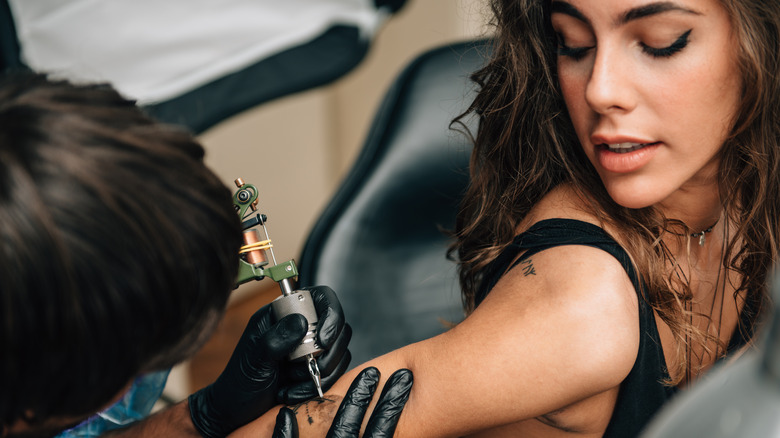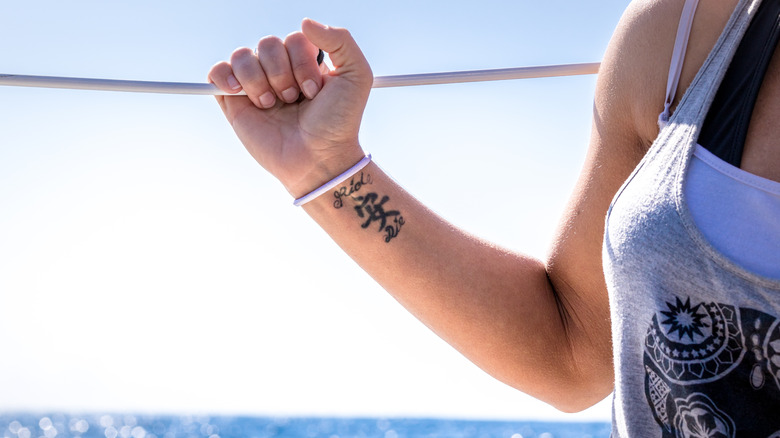Why You Should Think Twice About Getting A Tattoo In A Different Language
Tattoos are tempting. They are the ultimate form of self-expression, and once you get one, well, you know the rest — they can truly be addicting. But while a rose tattoo might just be an image of your favorite flower, (or possibly symbolize a loved one with that name), you should think twice about getting a tattoo in a different language. After all, there's a lot that can get lost in translation.
At the very least, tattoos are artwork. Most of the time, they are meant to have some kind of meaning, even if it's only apparent to the person getting tatted. But it's when people who are picking out their first (or even their fourth) tattoo opt to take words in their native tongue and have them represented in another language where things can get, well, misunderstood. The reason: words or phrases (think "seize the day" or "you got this") might be motivating in English, but oftentimes don't translate well (if at all) in other languages, as reported by The Society Pages.
You've probably seen many Chinese or Japanese character tattoos, and with good reason. Apart from being striking and clean, they often have deep symbolism (via Celebrity Ink). Thing is, it's very challenging to take two words (or sometimes, even a few letters) and put them together so that they make the same sense in another language as they would in your own tongue.
Here's when getting a tattoo in another language might be a mistake
Just ask Ariana Grande. The two-time Grammy winner got a tattoo on her hand that was meant to say "seven rings" in Japanese. Of course, the "seven rings" symbolism was meant to represent her hit single of the same name. But when she got it tattooed on her hand, fans were quick to point out that the Kanji characters actually translated to "shichirin" which is a barbecue (via Insider). After an attempt to fix the goof, Grande's tattoo now reads "Japanese BBQ finger," far from her original intention.
But the problem with tattoos in a different language sometimes is more than skin deep — literally. Sometimes tattooing words or phrases that are not in your native tongue might seem exotic, but it can also be seen as cultural appropriation (via The Atlantic), adopting something that isn't inherently yours to claim. That can be anything from the foods you eat, the style of clothing you wear, and yes, the tattoos you choose as body modification, if it's not already a part of your own culture.
Ultimately, the choice of what type of tattoo you choose (and its symbolism) is entirely up to you. Just make sure that if you are going to have something written in another language that you check with someone who speaks it fluently to ensure that it's accurate. Otherwise, you'll wind up with a Japanese BBQ finger — and no one wants that.

